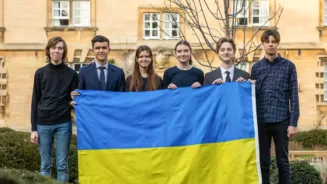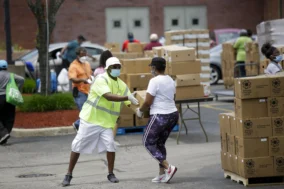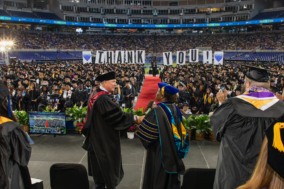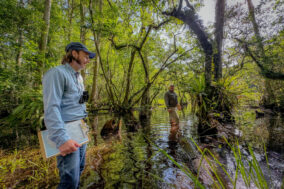A Life Beyond War for Ukraine’s Math and Science Stars
1. INTRODUCTION
Ukrainian students, including some of the brightest of their generation, have faced unimaginable hardship and have had their education and futures disrupted. The Ukraine Math and Science Achievement Fund aims to ensure that these brilliant students have the opportunity to realize their academic ambitions and leave their mark on the world.
Introduction
Few crises in recent decades have been as devastating as the war in Ukraine, which began when Russian forces launched a large-scale attack on their Eastern European neighbor in the early morning hours of February 24, 2022.
The human consequences of the war have been wide-ranging, and in some cases unimaginable, but one particular impact caught the eye of an associate professor of computer science at the University of Cambridge, Dr. Ferenc Huszar.
For years, Huszar has worked with students from Eastern Europe who participate in competitions like the International Math Olympiad, a global competition for the world’s most gifted high school mathematicians, in which Ukraine has a proud tradition. In the weeks following the invasion, Huszar began to wonder what was happening to those talented Ukrainian students whose lives had been upended by war.
As he reached out to students in the Olympiad community, Huszar learned about the harrowing experiences these brilliant young men and women were enduring. One of the most accomplished students, an 18-year-old named Ihor Pylaiev, lived with his family on the outskirts of Kharkiv when one morning he was awakened by the ear-splitting sound of inbound missiles whizzing overhead.
Hiding in his apartment as nearby explosions shattered his building’s windows and the clatter of gunfire grew closer, he and his family soon moved closer to the city’s center for temporary safety. After hurriedly packing, he managed to escape Ukraine, only to become a refugee in Italy—a country where he had no friends, whose language he did not speak, and where he would find it difficult to access the specialized advanced education he needed.
“It suddenly clicked that some of these Olympiad-winning, amazing students I’m writing about are the same people I see in the news who are refugees or are having to leave their country. Once I made that connection, I immediately started this project.”
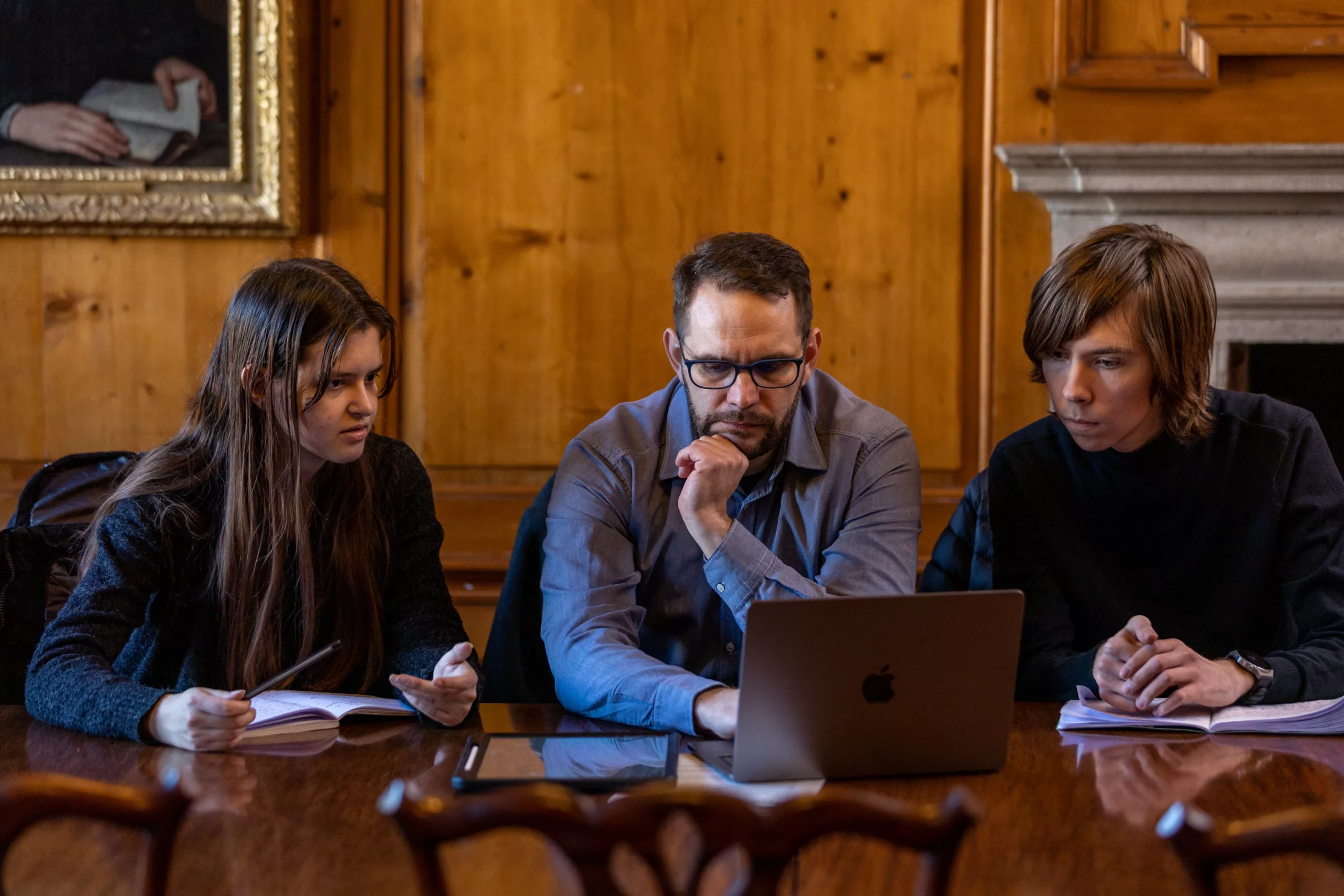
Establishing the Fund
Moved by the Ukrainian students’ plight—and afraid that a generation of the world’s most gifted young minds would fall victim to the uncertainties of war—Huszar and a few dedicated colleagues used their own funds to provide whatever help they could, including purchasing laptops for the refugee students. But as weeks of war turned to months, the students’ needs exceeded what this dedicated group was able to provide, so Huszar and his colleagues went in search of additional partners.
At Griffin Catalyst, they found a receptive ear, and the Ukraine Math and Science Achievement Fund was born. Launched with an initial $3-million gift from Ken Griffin and administered by the Digital Harbor Foundation in Baltimore, the Fund provides tuition and a wide range of additional support to help talented Ukrainian students impacted by the war, enabling them to pursue STEM studies at top schools around the world.
The Fund got off the ground quickly with seven students—four men, three women, and all Olympiad medalists. In that first group was Ihor Pylaiev, who attended Cambridge University with support from the Fund. In July 2022, Ihor was able to enter the International Math Olympiad in Oslo, where he triumphed as the overall global winner and the first Ukrainian student recorded history to achieve a perfect score in the competition.
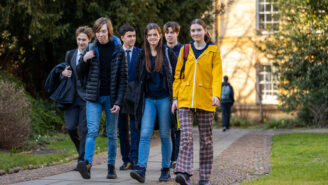
“Everything has changed. Different country, different language, different culture. What has stayed the same is math—it is still the center of gravity for me.”
Providing a Lifeline
In the three years since its founding, the Fund has continued to expand its reach, providing a lifeline to growing numbers of talented Ukrainian math and science students whose lives have been disrupted by the war. A total of 47 such students are now studying at top universities around the world, from the United Kingdom to France to Singapore. Twenty-four of these students are studying in American universities, including some of the most selective institutions in the country, such as MIT, the University of Chicago, and Columbia, where three of the newest Fund recipients—Olya Volianyk, Uliana Hauk, and Dmytro Prosiannikov—are pursuing an education in math and science.
Olya Volianyk, originally from a town in western Ukraine, is studying computer science at MIT. The winner of two Bronze Medals in Informatics at the European Girls’ Olympiad, she and her family left for Germany soon after the war started, before settling in Newcastle, England. “If not for the Fund, I probably would have never applied to MIT at all,” Olya explains. “I thought that I had nearly zero chance of getting in and it was not worth my time to apply. But when the Fund came in, they basically covered all of the expenses for all of the exams, the application fees, all of the flights, all of the things I needed for my dorm room—which was a huge help because my family basically lost everything.” Now a freshman, Olya is able to pursue her college studies in computer science, exploring promising applications of computing in neurobiology and other medical fields.
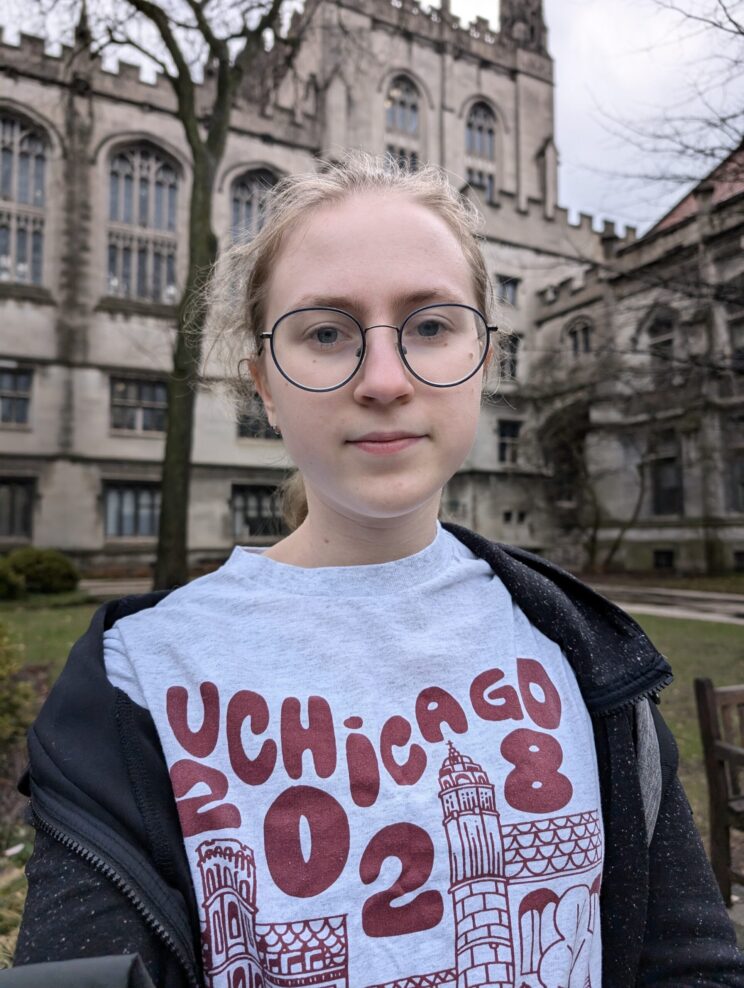
Uliana Hauk, born in Kiev, won a Bronze Medal from the Ukrainian Physics Olympiad and two Silver Medals from the Ukrainian Astronomy Olympiad. The Fund has helped bring her to the University of Chicago. “The Fund gave me the big push,” Uliana recalls. “I’m not sure if I would do all of this by myself, because the process is very long, the documents, the applications, all of the things. So it really helped me. Plus now I know that I can ask them first for help, so I’m not totally alone with all of this, so that’s really helpful and comforting.” Uliana, now a freshman, is focusing on astrophysics, with the intention of pursuing a PhD after graduating.
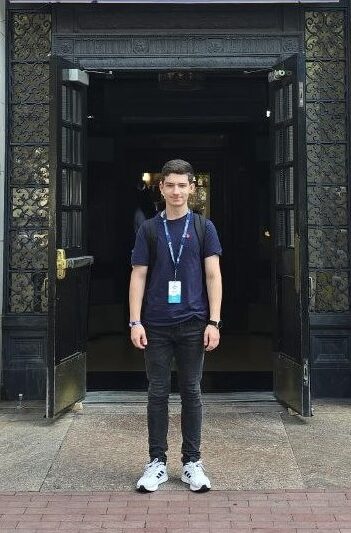
Dmytro Prosiannikov, from Vinnytsia, a small city southwest of Kyiv, was a promising high-school math student when he and his family were forced to flee Ukraine as the conflict started in 2022, first to Warsaw—where he won a Silver Medal in the Baltic Math Olympiad—and then to Germany, where, based on his success in the Olympiad, the Fund offered to help him apply to university. Like his peers, Dmytro was surprised by the breadth of the support he received. “The Fund assisted everywhere,” he recalls, “and took care of every single aspect of moving to the United States and the application process.”
Dmytro was thrilled to be admitted to Columbia University, his first choice—but he still faced formidable obstacles in getting to New York. “The Fund helped with the visa application,” he notes. “They paid the necessary fees. They also helped with flight tickets. And when I arrived, they helped me to get to Columbia. There was literally not a single aspect of my journey to the United States not somehow covered by the Ukraine Math and Science Achievement Fund.”
“The Fund affected my life enormously. I remember a couple of months after the war started, the question was, what to do with my future? Because I needed to go to school. And it was not clear whether it would be possible for me to come back to Ukraine and study there. The United States was the best opportunity possible, but it seemed unavailable. So I'm very grateful for all of what the Fund did. This opportunity is something which would be impossible to get otherwise.”
Today Dmytro is majoring in physics at Columbia and plans to move on after college to graduate studies and a career in research. “I think I’ll concentrate on condensed matter physics,” he says, “which focuses on new materials. It’s a very modern area of physics. It’s very interesting and fundamental.”
